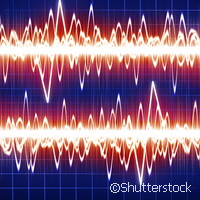Innovative treatments heralded for epilepsy patients
Novel approaches are being used in the treatment of epilepsy, a devastating neurological disease that affects 50 million worldwide, 6 million of whom are in Europe. This research targeting epilepsy involves using viruses to infect brain cells, and transplanting cells into the brain. The project pioneering this alternative treatment is titled EPIXCHANGE ('Innovative gene therapies for epilepsy treatment'), and work will be carried out at Lund University, Sweden, in collaboration with Italian, Danish and French researchers from academic institutions and small and medium-sized enterprises (SMEs). The total budget for the project is almost EUR 1 million and it is funded by the European Union. Often referred to as a seizure disorder, epilepsy is usually diagnosed after a person has two seizures that were not caused by a known medical condition or by extremely low blood sugar. The seizures are caused by sudden, usually brief, excessive electrical discharges in a group of brain cells (neurons). One seizure does not signal epilepsy (up to 10 % of people worldwide will have one seizure during their lifetime). Epilepsy is one of the world's oldest recognised conditions, but it can be treated with anti-epileptic treatments in around 70 % of cases. A significant part of the costs of neurological diseases is associated with epilepsy. In Sweden, where EPIXCHANGE was devised, 60 000 people suffer from epilepsy. However, around 30 % to 40 % of these patients are resistant to pharmacological treatments, which are mostly symptomatic and often have side effects. Therefore, the main objective of EPIXCHANGE is to explore innovative gene therapies for epilepsy treatment. The project will explore the development of encapsulated human cell lines producing the neurotransmitter galanin and the neuropeptide Y (NPY) and their effect on epileptic seizures, and will use viral vectors to deliver neuropeptides and other proteins - neurotrophic factors - into the brain to suppress seizures. These novel approaches will lay a foundation for developing alternative treatment strategies for epilepsy. Epilepsy accounts for 0.5 % of the global burden of disease, a time-based measure that combines years of life lost due to premature mortality and time lived in states of less than full health. Epilepsy has significant economic implications in terms of healthcare needs, premature death and lost work productivity. Although the social effects vary from country to country, the discrimination and social stigma that surround epilepsy worldwide are often more difficult to overcome than the seizures themselves. People with epilepsy are frequently targets of prejudice. For example, in the United Kingdom, a law forbidding people with epilepsy to marry was repealed as recently as 1970. In the 1970s in the United States, it was legal to deny people with seizures access to restaurants, theatres and recreational centres. The stigma associated with the disorder has often discouraged people from seeking treatment for symptoms and becoming identified with the disorder. However, this is changing, and a viral vector approach to delivering genes of interest into the brain is already a reality. Several studies have been performed in clinical settings in the United States for Parkinson's disease. According to Professor Merab Kokaia of Lund University, the plan is to perform such clinical trials in Lund on patients with severe epilepsy who do not respond to drug treatment.For more information, please visit: Lund University:http://www.lunduniversity.lu.se/ EPIXCHANGE:http://www.epixchange.eu World Health Organization (WHO): http://www.who.int/topics/epilepsy/en/
Countries
Sweden

